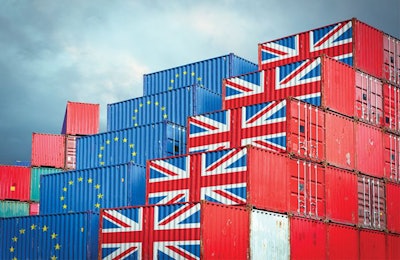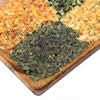
In efforts to provide lower cost products to U.K. consumers, the British government is slashing tariffs on hundreds of imported products, including pet food and pet food ingredients, as it contends with post-Brexit trade ramifications. Launched earlier this month, the new Developing Countries Trading Scheme (DCTS) goes further than the European Union’s (EU’s) Generalized Scheme of Preferences (GSP), according to the U.K.’s International Trade Secretary, Anne-Marie Trevelyan.
Since Brexit, the U.K. has been operating with its own GSP, which is similar to the EU’s version. DCTS will replace the current UK GSP in early 2023, covering 65 countries. It benefits least developed countries (LDCs) the most, providing duty-free, quota-free trade with the U.K. It also provides the same for up to 85% of eligible products from most lower income countries and lower middle income countries. The full list of all countries is available in Annex-1 of the DCTS government policy response.
New program aims to reduce red tape, too
The scheme also simplifies rules of origin, which dictate the proportion of a product that must be made in a country prior to importing to the U.K. The purpose is to reduce red tape for importers, incentivizing firms to import from developing countries. Whereas previously, product-specific rules for pet food (under HS code 2309 – preparation of a kind used in animal feeding) had to meet stricter requirements, DCTS allows for a change of tariff heading, with no processing requirements. The product-specific rules schedule for DCTS can be found here.
A second aspect for consideration by the pet food industry is the concept of cumulation, which allows for materials produced in one country to be declared as originating in a different country, as long as the final product has been processed beyond minimal levels. Currently, GSP beneficiaries can only cumulate in certain territories, such as the EU, Indonesia and India, to name a few. The new policy extends cumulation to LDCs, allowing them to develop value chains from up to 95 countries now and still export to the U.K tariff-free.
UK imported more than 1 million tons of pet food in 2021
Specifically for pet food, dog and cat food put up for retail is no longer included in the Standard Preferences Tariff, and is valued at 0% in the Enhanced Preference’s Tariff and the Comprehensive Preferences Tariff. As the UK continues to expand its policies with reference to global trade implication, there is high potential for pet food from developing countries to now enter the U.K. market.
For perspective, in 2021 the U.K. imported 1.02 million tons of pet food under HS Code 2309, with more than half that amount for retail pet food, at a value of US$1.6 billion and US$1.2 billion, respectively, according to the UN Comtrade Database.


















